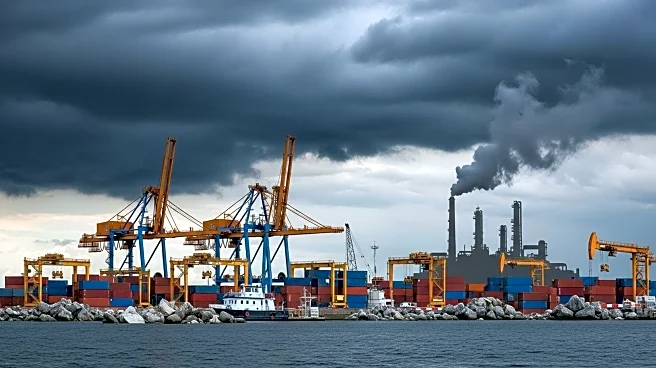What is the story about?
What's Happening?
Ukraine's drone attacks on Russian oil infrastructure have raised concerns about Russia's ability to maintain its oil output. Transneft, Russia's pipeline operator, has imposed limits on storage capacity, warning that continued damage could force a reduction in crude acceptance. The strikes have targeted major refineries and Baltic loading ports, causing significant disruptions. The cumulative effect of these attacks has taken up to 20% of Russia's refining infrastructure offline, impacting oil export revenue.
Why It's Important?
The ongoing strikes on Russian oil infrastructure are strategically significant, as they aim to curtail Russia's oil production, a major source of revenue for its war efforts. The potential reduction in oil output could influence global oil prices, given Russia's role as a major crude producer. The situation underscores the vulnerability of energy infrastructure to geopolitical conflicts and highlights the broader implications for global energy markets. The strikes also reflect Ukraine's strategic objectives in the conflict, aiming to weaken Russia's economic capabilities.
What's Next?
If the damage to Russian infrastructure continues, Transneft may be forced to accept less crude, potentially leading to a reduction in oil production. This scenario could have far-reaching effects on global oil supply and prices. The ongoing conflict and infrastructure attacks may prompt Russia to seek alternative export routes or increase security measures. The international community will likely monitor the situation closely, considering its impact on energy markets and geopolitical stability.


















